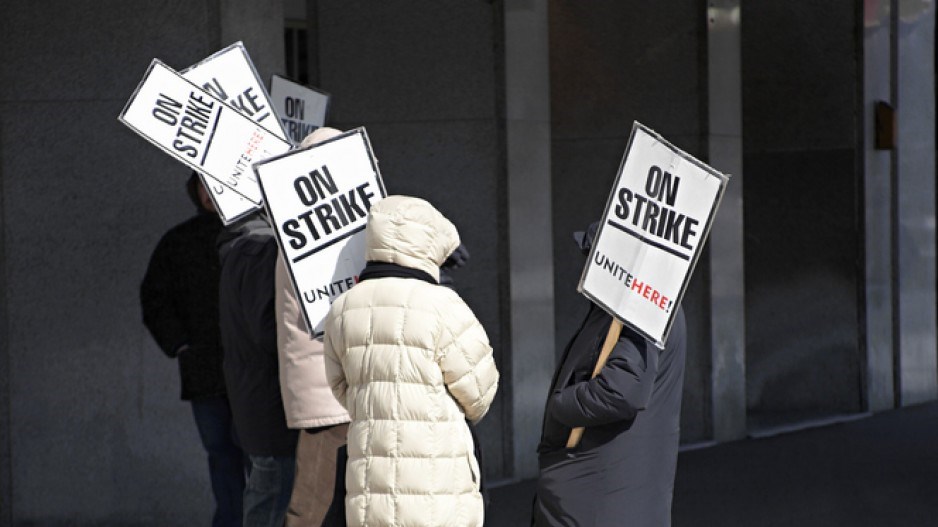The union representing 33,000 B.C. government workers has served 72-hour strike notice on the provincial government.
An announcement from the B.C. General Employees’ Union at 4:30 p.m. Friday said the union would be in a legal position to take job action at 2:46 p.m. on Monday, but the union was not immediately releasing details of whether it would begin picketing job sites.
BCGEU workers run the gamut, from social workers and forest fire fighters to jail guards, liquor store workers and clerical staff.
The most-recent contract expired April 1. Negotiations began Feb. 8, but reached an impasse on April 6. Members voted 95% to strike in a tally announced June 22.
There was no progress when the two sides met in July and an attempt to resurrect talks earlier this week failed. The union had until Sept. 20 to serve strike notice.
The union rejected a nearly 11% increase over three years plus up to $2,500 per member signing bonus offered by the government. Its key demand is for a cost of living adjustment clause to keep up with inflation.
“The bottom line is they’re not asking for anything that MLAs don’t already have,” said BCGEU president Stephanie Smith. “The strike vote in June and issuing strike notice today is a message to government that our members are serious.”
When talks began in February, inflation was 5.7%. It hit a 40-year high of 8.1% in May.
Nearly a month ago, on July 15, Smith released a video that said BCGEU was negotiating with the government over minimum staffing levels to maintain health, safety and welfare. However, in a July 28 bargaining update, the union said it was being prevented from a legal strike position because of government’s insistence on high essential service levels. That prompted a complaint to the Labour Relations Board.
In July, Smith said the union was considering other tactics, such as work to rule, including bans on overtime, circulating petitions at the workplace, holding lunchtime information lines, refusing hazardous work and any tasks that fall outside of classification duties.
BCGEU is a fraction of the 400,000 public sector workers whose contracts have expired or will expire this year. The outcome of the BCGEU dispute is expected to influence all other contracts.
“An increase of 1% in total compensation for all B.C. public sector employees is estimated to cost $386 million,” says a government website about public sector bargaining. "For union and other negotiated agreements, a 1% increase would cost nearly $311 million.”




